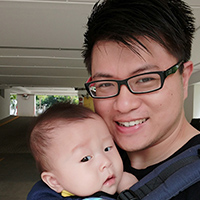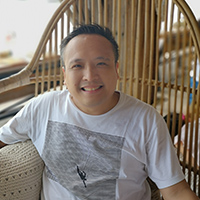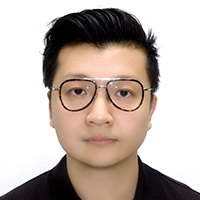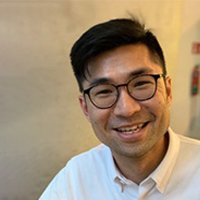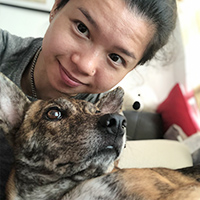Undergraduate Alumni Stories
Brenda Nicole TAN
Full-Stack Developer, UX Advisor and Co-founder, Gametize
Bachelor of Science (Information Systems), Class of 2009
SMU SCIS is not about being geeky. You don't just unlock and level up in hard skills like programming, databases, software architecture and security. You also learn how to apply these skills in a variety of real-world settings and gain experience points in learning how to manage people. My projects in SMU are among the fondest memories throughout my entire student life.

Q: What is the main focus of your current job role?
Currently turning the world into a giant playground at Gametize with my co-founders and fellow SMU Alumni Keith Ng and Damon Widjaja. I co-lead the Technical Development team with Damon Widjaja while juggling dual roles as a full-stack developer and user experience design.
Q: Why did you choose to join SMU SCIS?
To be very honest, I initially chose it for a superficial reason - its downtown campus. But semester after semester, it became clear that it’s the best decision I ever made, because it equipped me with the necessary skills to be the versatile Ninja I am today. (Tooting my own horn here, ahem.)
Q: What did you enjoy most about your time in SCIS?
Call me crazy, but I really enjoy project work because you are exposed to a multitude of personalities and working styles.
Q: How has SMU SCIS experience contributed to your career development?
If it wasn’t for SMU SCIS, I wouldn’t have met my co-founders Keith Ng and Damon Widjaja. And I wouldn’t be waking every day up to a job I love so immensely that I can’t visualize my life without Gametize.
Q: What skills are employers looking for?
Hard skills are very easy to come by these days, so what appeals to me are people skills. The ability to communicate clearly to a team, the ability to empathize and the ability to see logic through different perspectives, without any hubris. Of course, versatility across different technical disciplines is also a plus.
Q: Any interesting trivia about your time at SMU SCIS?
In my first ever programming project, I was assigned to write getters and setters for Java objects and variables as I’ve had zero prior Java knowledge. I gave my project teammate a blank stare and went ‘huh?!‘
Q: What CCA did you participate in in SCIS?
SMU Bowling and Music Interactive Club (MIC).
Calixto TAY
Managing Director, Originally US
Bachelor of Science (Information Systems), Class of 2013
- Established in 2022, the Originally US Future Information Technology Leader Award
- Established in 2020, the Originally US Award for Top Third Year Computing and Information Systems Student
To a programmer/developer, an application or system may just be a few lines of code. But that few lines of code can mean everything to your users, transforming their lives by helping them do things that may previously be impossible, be more productive, or form meaningful connections with others.

Q: What is the main focus of your current job role?
I help businesses and organisations build delightful digital connections with their customers and employees.
Q: Why did you choose to join SMU SCIS?
I had interest in programming and technology since a young age, - writing my first application when I was 13. However, I realized that knowing IT is just half the story. It is also equally important to know how IT can be used to create value to businesses, organizations or the society, and this is why I join SMU SCIS.
Q: How has SMU SCIS experience contributed to your career development?
The heavy focus on project work in SMU SCIS gave me ample opportunities to pick up and improve my people and soft skills. These are essential foundations for leadership skills which are paying me dividends now as I start my own businesses and work as part of a team with my employees.
Desmond WONG
Managing Director, Accenture
Bachelor of Science (Information Systems), Class of 2009
We live in a VUCA (volatile, uncertain, complex and ambiguous) world, as seen with the recent pandemic which threw a curveball for many of us and disrupted workforces. In this unprecedented environment, digital technologies will be the driver for change. People around the world are also forced to embrace technology faster and adapt at speed to a new way of operating. The study of Information Systems paves a way for the future workforce to support the digitized world.

Q: What is the main focus of your current job role?
I am currently a Managing Director with Accenture, leading various digital transformation and modernisation business solutions for clients in the health and public service sector in ASEAN. I am also spearheading the innovation initiatives in Accenture.
Q: Why did you choose to join SMU SCIS?
I choose SCIS because of its holistic pedagogy and offerings to help students jump start their careers.
Q: What did you enjoy most about your time in SCIS?
Networking and hanging out with friends after class. I am still in close contact with my friends from SCIS and although we are all busy with work and family, we make it a point to catch up regularly.
Q: How has SMU SCIS experience contributed to your career development?
I equipped myself with both business and technical skills that are important for my current role.
Q: What does ‘Creating Our Digital Future / Digital Transformation’ mean to you?
Digital transformation provides a multitude of opportunities to uncover and unlock trapped value in organisations. There is a need for organisations to challenge the status quo and innovate for results.
Q: Any advice to prospective students / upcoming graduands?
We are always busy with work and are often overwhelmed by life’s pressures. It is not about having time, but making time – time for family, friends and work. You have to learn to prioritise and make choices at the appropriate time. When you feel overstretched and forget the sense of purpose and balance, take a breather to gain clarity again.
Q: What skills are employers looking for?
Agility and willingness to learn, improve and adapt to change in this VUCA era
Q: What sets an SCIS fresh graduate apart from other job applicants?
SCIS fresh graduates are unique as they are versatile and equipped with both business and technical knowledge which we see lacking in this job market.
Q: Any interesting trivia about your time at SMU SCIS?
I met my wife in my first year in SCIS. She was my senior then!
Felix ONG
Regional IT Auditor, AIA Thailand
Bachelor of Science (Information Systems), Class of 2009
The digital world needs a lot of help in cybersecurity. Please help contribute to cybersecurity!

Q: What is the main focus of your current job role?
I am currently working as a regional IT auditor in Group Internal Audit at AIA Group. I am based out of the Bangkok office, where I help perform technical IT audits in different offices across the AIA Group.
Q: Why did you choose to join SMU SCIS?
I had great interest in computing and was drawn by the teaching pedagogy at SMU SCIS whereby there is a lot of focus on presentation and projects. These skills are important in the real world.
Q: What did you enjoy most about your time in SCIS?
I enjoyed the SMU SCIS interview approach in 2003 at the Bukit Timah campus with different professors (e.g. Steve Miller, Desai) As an undergraduate, I enjoyed the learning process from the difficult SCIS projects (e.g. software engineering, architectural analysis).
Q: How has SMU SCIS experience contributed to your career development?
The projects at SMU SCIS are very relevant to my career as an IT auditor. The learning experience for one of the modules (IT Governance and Portfolio management) is of great importance in my career as an IT auditor.
Q: What does ‘Creating Our Digital Future / Digital Transformation’ mean to you?
It means to make things and processes simple with technology while taking the implications of cybersecurity into consideration.
Q: Any advice to prospective students / upcoming graduands?
To prospective students, the SMU SCIS experience will be valuable for your future professional career.
Q: What skills are employers looking for?
Referring to a career as an IT auditor, the hard technical skills (e.g. technical network knowledge, Operating System knowledge) are important. However, soft skills like cross border communication, virtual team collaboration, cross culture sensitivity are critical skill sets for regional and global roles in Singapore. (e.g. IT auditor working in a global audit hub for MNC in Singapore).
Q: What sets an SCIS fresh graduate apart from other job applicants?
Presentation and project management skills will set SCIS fresh graduate apart.
Q: Any interesting trivia about your time at SMU SCIS?
I was part of the SMU Information Systems Society (SISS) (now known as Ellipsis) and participated in a couple of SCIS freshmen orientation events. They were good and fun experiences for me.
Q: What CCA did you participate in in SCIS?
Running
Fengru LIN
CEO, TurtleTree Labs
Bachelor of Science (Information Systems), Class of 2011
Every industry is driven by tech today; finance, logistics, transport and even in life sciences. With a BSc from SCIS, we are able to enter the workforce with skills and toolkits that are instrumental in driving innovation, efficiency and collaboration. Being able to lead through these lenses is truly a game changer.
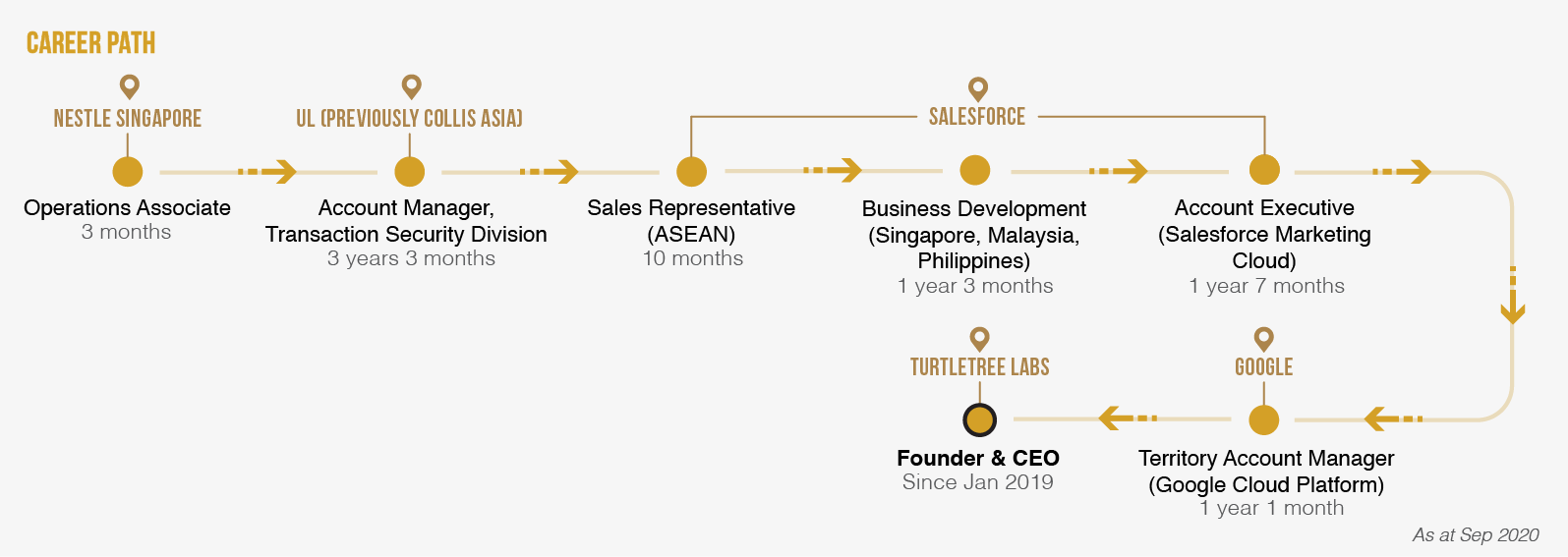
Q: What is the main focus of your current job role?
I am the CEO of TurtleTree Labs. TurtleTree Labs is the first biotech company in the world with the ability to create milk from all mammals. Using our proprietary cell-based methods, we will shape the future of not just how we get dairy milk but how humans will feed their infants.
Gerald TAN
Projects Director and Founder, AVODAH People Solutions
Bachelor of Science (Information Systems), Class of 2009
Your pursuit of education must go beyond what you learn. It must help you learn and respond to the fast changing world of work. Choose an education that will immerse you in such an environment.
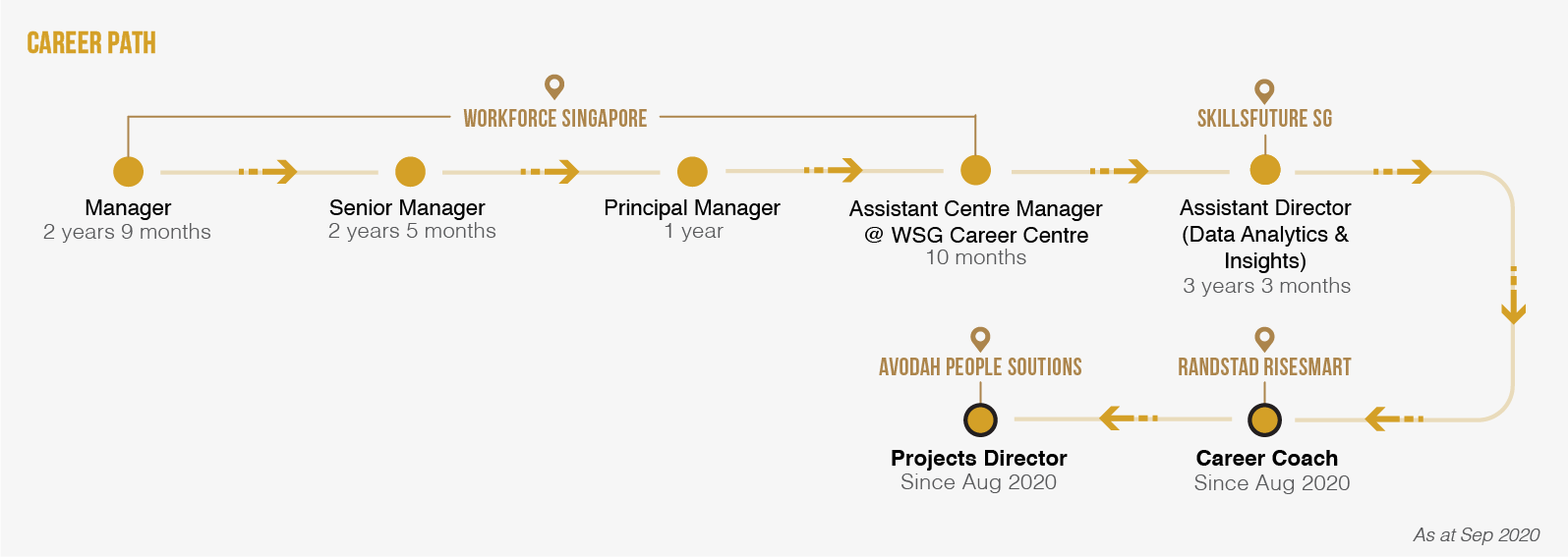
Q: What is the main focus of your current job role?
As the Projects Director and Founder of Avodah People Solutions, I work with agencies, companies to develop career services to help people make informed career decisions and guide them to smoothen their job transitions.
Q: Why did you choose to join SMU SCIS?
Back in 2005 when I started my education in SCIS, technology was already an enabler for all business and amazing things could be done to create revenue, improve efficiency and solve problems. 15 years on, technology is being integrated beyond business, changing everything we see and do. It takes a trained and educated mind to recognise how to harness the benefits of Infocomm technology. I am glad to have chosen SCIS as my tertiary education as it gave me a good starting base
Q: What did you enjoy most about your time in SCIS?
The people in SCIS made the difference. The faculty who were patient and always open to ideas and innovation. The education pedagogy that they brought to us focused a lot on practical and real world solutioning. It was not just studies though, the student life in SMU / SCIS was really rich too. I remember being part of the student body for SCIS to represent the students and promote cohesion. So much fun and friendships there!
Q: How has SMU SCIS experience contributed to your career development?
One key aspect of the SCIS experience that has continued to guide me in my career is the ability to lead and work with different people. The emphasis on project work with tight timelines exposed me to understand how to work with people, how to recognise the unique strengths that each person brings. The projects built up my foundational knowledge of logical thinking, systems and solutions thinking, project management and business case justifications. All these helped me in my decade in public service, where I worked with diverse stakeholders on a range of technology and non technology projects as well as now in my own business.
Q: What does ‘Creating Our Digital Future / Digital Transformation’ mean to you?
It means embracing a future where the boundaries of how we define of daily living and work will constantly be pushed as technology continues to grow and integrate into all parts of our lives.
Q: How has SMU SCIS experience contributed to your leadership for digital transformation at your workplace?
I was leading a new team in analysing transactional data to draw insights and translate the findings into policy making. The experience was very much like project work, having to think end to end, scoping out the data collection and pre-empting challenges before using an interactive rapid prototyping approach.
Q: Any advice to prospective students / upcoming graduands?
Don’t limit yourself to what you can see or what others are doing. There are many paths to success so learn to define what success for you should be. Relish a challenge and go for the harder path first because that’s where growth happens.
Q: What skills are employers looking for?
Technical skills is a definite area and the need to keep up with new technologies and methods is a must. Beyond that, employers want confident and articulate professionals who are able to define issues clearly, gather resources, plan solutions and bring stakeholders and expertise into implementation.
Q: What sets an SCIS fresh graduate apart from other job applicants?
The reputation of SCIS and SMU that has been built up over the years by alumni adds to your advantage.
Q: Any interesting trivia about your time at SMU SCIS?
I always remember crashing a web service for a project just on the day of our final presentation. Due to the amount of testing we did and coupled with many project teams using the same web service, the site recognised the SMU IP as an intruder due to unusual traffic and blocked it. That morning, many project teams including mine, couldn’t present our working product!
Q: What CCA did you participate in in SCIS?
Red Cross – advocated for disaster preparedness. SMU Information Systems Society (SISS) (now known as Ellipsis) - elected 3rd exco and started the PRISM (SCIS student-published) magazine with a good friend. Also planned the very first overnight faculty freshmen orientation camp - Metamorphosis in 2006. Prior to that it was a daytime camp!
Keith NG
Business Development and Co-founder, Gametize
Bachelor of Science (Information Systems), Class of 2008
The SCIS experience is a game that must be played; unlock various badges from coding, architecture designs, business management, arts, social skills, and earn for yourself a lifetime of friendship and association with the good people of SCIS. It is a sure-win game.

Q: What is the main focus of your current job role?
Currently turning the world into a giant playground with my co-founders at Gametize, Damon and Brenda. I lead the Business Development team.
Q: Why did you choose to join SMU SCIS?
It provides great opportunities to network with external companies, and the curriculums are world-class and backed by Carnegie Mellon University (CMU).
Q: What did you enjoy most about your time in SCIS?
Making lifelong friends from the teaching faculties to coursemates.
Q: How has SMU SCIS experience contributed to your career development?
I was blessed to receive a SCIS scholarship sponsored by DFS, and it has certainly provided a boost to my confidence to start a company after graduating without concerns of repaying school fees.
Q: Any interesting trivia about your time at SMU SCIS?
I did not own a laptop for the first year of my SMU life, and was using a notepad and pen for all meetings/classes.
Kevin QUAH
CEO and Co-founder, TicTag
Qualification
- Bachelor of Science (Information Systems) & Bachelor of Laws, SMU, Class of 2014
In a world that’s advancing so quickly, and with technology making so many other jobs redundant, technology is really the only future-proof skill you can pick up. At SCIS, it goes beyond what you learn in the seminar room - the entire culture of SCIS nurtures your own ability to solve problems for yourself, and that is the most valuable skill you can have in your career and as a member of society.

Q: What is the main focus of your current job role?
My current job role is now to manage Tictag, both internal and external facing elements, providing both the vision and ensuring the execution of each of our overarching goals. I also represent the company as a whole.
Q: Why did you choose to join SMU SCIS?
Back then, SCIS wasn’t quite as well-known as it is now, so I guess you could say it’s because I love taking (calculated) risks.
Q: What did you enjoy most about your time in SCIS?
I had a love-hate relationship with lab tests. Really gives you an adrenaline rush.
Q: How has SMU SCIS experience contributed to your career development?
It’s given me a firm technology foundation to operate as an technology professional in an increasingly jargon-filled world. Beyond that, SMU has really honed my communication skills.
Q: What does ‘Creating Our Digital Future / Digital Transformation’ mean to you?
Taking what’s outdated and giving it a breath of new life with technology.
Q: How has SMU SCIS experience contributed to your leadership for digital transformation at your workplace?
I recruited a whole bunch of my SMU SCIS mates who helped to grow Taiger from 6 people to 150 today.
Q: Any advice to prospective students / upcoming graduands?
Don’t stress out about not knowing coding. I watched people who come in with zero knowledge and did far better than people who had experience in poly - vice versa too of course, but it’s the drive and passion that counts.
Q: What skills are employers looking for?
The ability to find your own ideas to solve problems. No one likes an employee who needs to be spoonfed and guided in the exact direction all the time.
Q: What sets an SCIS fresh graduate apart from other job applicants?
Other than what I mentioned in the previous point, their excellent communication skills. After 4 years of SCIS you’ll know how to articulate your ideas clearly, or get laughed out of class. It shows very clearly in interviews.
Q: Any interesting trivia about your time at SMU SCIS?
I was also a law student. But you know where my loyalties lie.
Q: What CCA did you participate in in SCIS?
SMU Broadcast and Entertainment. I was the President!
Phelicia GOH
Vice President, Technology Risk Officer, BNY Mellon
Bachelor of Science (Information Systems), Class of 2008
Look at Google’s “emerging trends in business”. For every article you read, identify the underlying trends and connect the dots. You will find that SCIS will provide the foundational skill set you need, to meet the demands for the future.

Q: What is the main focus of your current job role?
Second line challenge to technology risk matters and issues to facilitate management’s informed, validated and justified risk management decisions.
Q: Why did you choose to join SMU SCIS?
I chose SMU SCIS because of it’s hybrid Business and IT curriculum. Given that I graduated with a Diploma in Business IT from polytechnic, joining SMU SCIS was the logical continuation to my initial field of study and career aspiration. I had also heard of SMU’s pedagogy, a pedagogy that would be set me apart from my peers graduating from other local universities.
Q: What did you enjoy most about your time in SCIS?
I enjoyed the empowerment granted to me, as a student, to propose, plan and execute projects and events for SCIS under the SMU Information Systems Society.
Q: How has SMU SCIS experience contributed to your career development?
I took a course in my final year of study in SMU SCIS. In that course, I was introduced to Ernst & Young (EY) which i subsequently applied to, for an internship. This internship led to an IT Auditor job offer, even before I graduated from SMU SCIS.

